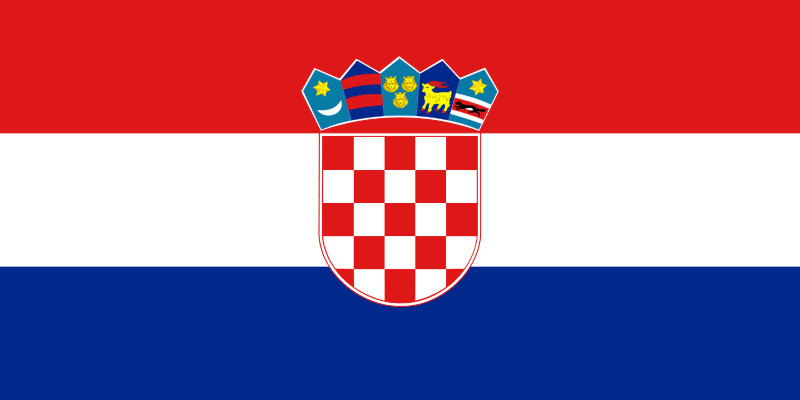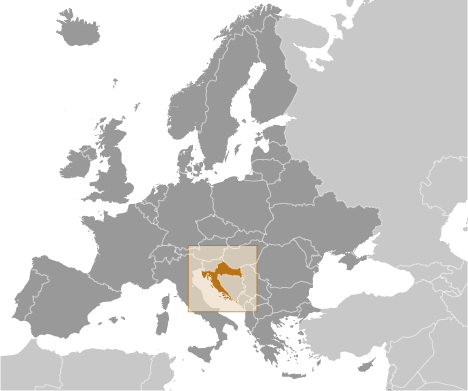HISTORICAL BACKGROUND
Text from the freedominfo.org Global Survey: Freedom of Information and Access to Government Records Around the World, by David Banisar (updated July 2004)
Article 38 of the Constitution of Croatia provides for freedom of expression and prohibits censorship, and provides a right of access to information to journalists.(1)
The Act on the Right of Access to Information was approved by the Parliament on 15 October 2003 and signed by the President on 21 October 2003.(2)
| Croatia: Basic Facts |
| • Life expectancy at birth (years), 2000-05: 74.9 |
| • Adult literacy rate (% ages 15 and above), 2003: 98.1 |
| • Combined gross enrolment ratio for primary, secondary and tertiary schools, 2002/03: 74.9 |
| • GDP per capita (PPP US$) (HDI), 2003: 11,080 |
| • Total population (millions), 2003: 5 |
| • Total fertility rate (births per woman), 2000-05: 1.3 |
| • Under-five mortality rate (per 1,000 live births), 2003: 7 |
| • Net primary enrolment ratio (%), 2002/03: 89 |
| • HIV prevalence (% ages 15-49), 2003: <0.1 [<0.2] |
| • Undernourished people (% of total population), 2000/03: 7 |
| • Population with sustainable access to an improved water source (%), 2002: N/A |
| Source: UN Development Program, Human Development Reports Data |
|
Any person has the right to information from bodies of public authorities, including state bodies, local and regional governments, and legal and other persons vested with public powers. Requests can be either oral or written. Public authorities are required to respond within 15 days.
There are mandatory exemptions for information that is declared a state, military, official, professional or business secret by law or personal information protected by the law on data protection. Information can also be withheld if there is a "well-founded suspicion" that its publication would cause harm to prevent, uncover or prosecute criminal offenses; make it impossible to conduct court, administrative, or other hearings; make it impossible to conduct administrative supervision; cause serious damage to the life, health and safety of the people or environment; make it impossible to implement economic or monetary policies; or endanger the right of intellectual property.
Appeals of withholdings are to the head of the competent body of the public authority. If that is unsatisfactory, complaints can be filed with the Administrative Court. As of 2005, the courts had issued twenty decisions, mostly relating to the failure of public bodies to respond to requests.(3) They did issue one controversial decision that contracts between the government and German Telecom were business secrets. Complaints can also be made to the Ombudsman. His decisions are not binding and the office has a broad mandate with many other issues.
Requestors can also demand that information that is incomplete or inaccurate be amended or corrected.
The law also imposes a number of administrative duties on public authorities to improve access. They are required to appoint an information officer and develop a catalog of the information that they possess. They must publish in the official gazettes or on the Internet all decisions and measures which affect the interests of beneficiaries; information on their work including activities, structure, and expenditures; information on the use of the Act; and information relating to public tenders. They must also create a report on the status of implementation. The government must publish an annual report on the overall implementation of the law.
There are sanctions available against both legal and physical persons for failure to make information available and criminal penalties for intentionally damaging, destroying, or concealing information.
The Council of Europe GRECO Committee recommended in December 2005 that the effectiveness of implementation be evaluated and further training be given to public officials.(4) A review in 2005 by the Croatian Helsinki Committee describes the implementation of the law as "very slow so far."(5) Public bodies fail to respond to requests, and many have not appointed information officials, created catalogs of information or registers of requests. The Zagreb Mayor's office was described as the most secretive public body. The Helsinki Committee also reported that journalists face difficulties in obtaining even routine information and that the Administrative Court was even denying the names of public bodies that were found by the court to have violated the law. Civil Society groups are continuing to push for amendments to the Act including the creation of an independent Information Commission and a public interest test.(6)
The 1996 Law on the Protection of the Secrecy of Data creates broad rules for the protection of five categories of information: national secrets, military secrets, official secrets, business secrets, and professional secrets.(7) A bill was introduced by the government in March 2006 to replace the 1996 law with a new Data Secrecy law which creates new limits on non-classified information. The government report claims that the 1996 law failed to set a common minimum security standard which resulted in the failure of many government authorities to adopt regulations, which violates their obligations under NATO and EU rules. The bill creates four categories of classified information including one that would allow classification if the information "would damage the efficiency and performance of tasks of public authorities" and fails to set maximum time limits on classification. NGOs in Croatia have set up a campaign to oppose the effort and promote amendments to improve access to information.
The unauthorized publication or disclosure of information classified as a state secret is a violation of the Criminal Code.(8) Officials can be imprisoned for up to five years. Non-officials who know they are publishing a secret can be imprisoned for up to three years or fined.
In 2001, the Interior Ministry provided access to the subjects of 650 files of the nearly 40,000 files created by the Agency for the Protection of the Constitutional Order (SZUP), former President Franjo Tudjman's secret police which operated in the 1990s. It claimed that the 650 were cases where the agency had monitored people without justification and the rest of the files were on paramilitary leaders or leaders of rebellions.(9)
Croatia signed the Aarhus Convention on Access to Information, Public Participation in Decision-Making and Access to Justice in Environmental Matters on 25 June 1998 but has not ratified it. In 2003, it approved the Protocol on Pollutant Release and Transfer Registers to the Aarhus Convention. The Environmental Protection Act of 1994 allows for some publicity and access to environmental information.
The Act on the Protection of Personal Data adopted in March 2003 sets rules on the access, collection and use of personal information.(10) Individuals can use the Act to access their records. It is overseen by the Personal Data Protection Agency, which was established in April 2004.(11)
Under the Law on Archive Records and Archives, documents are available after 30 years. Documents relating to national security, international relations and defense are sealed for 50 years. Documents which contain personal information are sealed for 70 years.(12)
2004 freedominfo.org Global Survey Results - Croatia
Notes
1. Constitutional of the Republic of Croatia, 2001. http://www.usud.hr/htdocs/en/the_constitution.htm
2. Act on the Right of Access to Information (172/03),15 October 2003.
3. Croatian Helsinki Committee, First FOI Litigation Experience in Croatia.
4. Greco Eval II Rep (2005) 4E, 9 December 2005.
5. Croatian Helsinki Committee, Monitoring 2005.
6.Legislative Proposal of Amendments to the Act on the Right of Access to Information. 28 March 2004.
7. Official Gazette No 108/96, Dec. 1996.
8. Criminal Code §§144-146.
9. Serbian agency says 126 journalists on Tudjman's secret police files in Croatia, BBC Monitoring Europe - Political, 12 November 2001.
10. Act on Personal Data Protection. Official Gazette No.103/03.
11. Homepage: http://www.azop.hr/default.asp?ru=141
12. Law on Archive Records and Archives No 105/1997. http://www.arhiv.hr/en/hr/pdf/Zakon%20eng.pdf





















